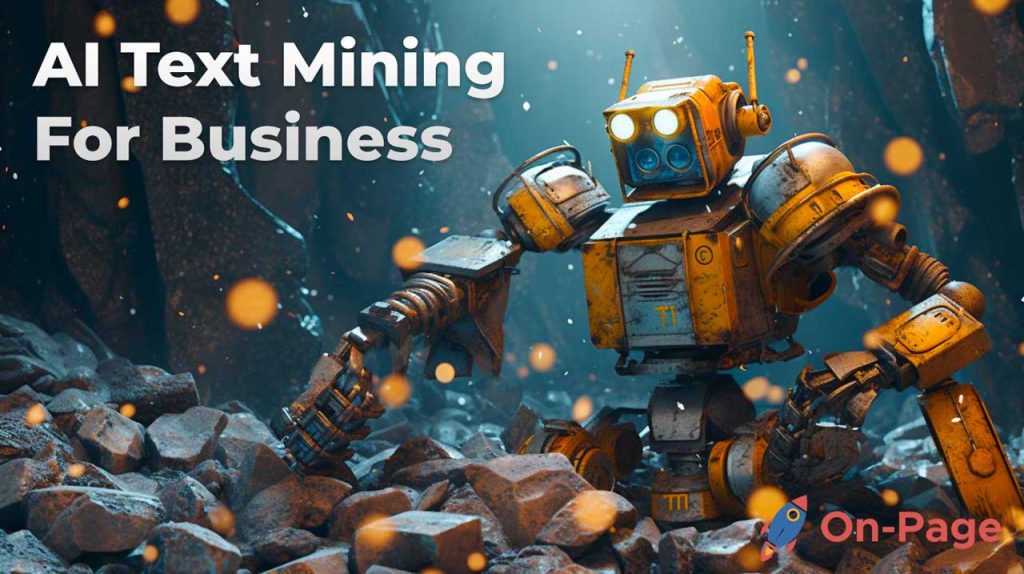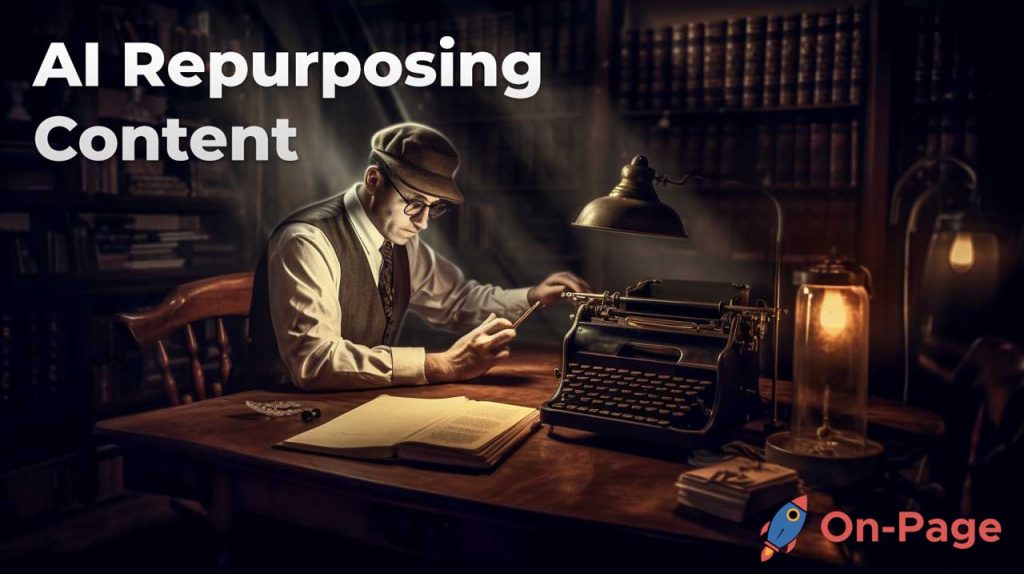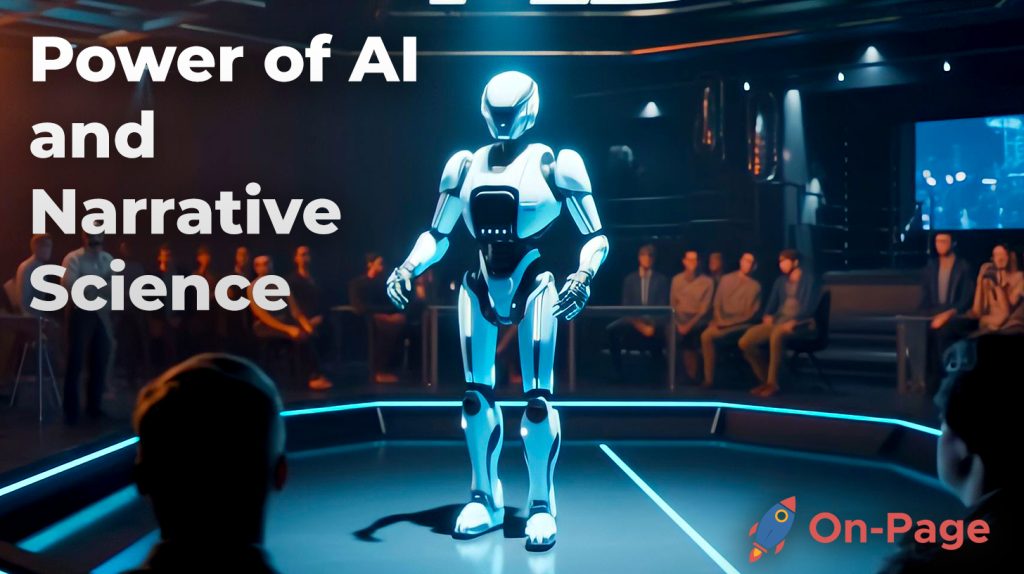Imagine your perfect screenplay collaborator: tireless, highly creative, and adaptable to your unique writing style. Now, picture this ideal partner as an AI-powered tool capable of revolutionizing the way screenplays are written. Welcome to the future of scriptwriting with artificial intelligence (AI) — a game-changing innovation transforming storytelling forever.

AI is being used as a tool to assist human screenwriters in the writing process, not to replace them entirely. For example, AI can help generate character names, suggest dialogue, or identify plot inconsistencies. However, the final creative decisions ultimately come from human input. The use of AI in scriptwriting is an emerging trend that has gained attention from the entertainment industry, but its impact on creators remains to be seen.
AI in the Scriptwriting Process
Artificial intelligence has revolutionized various industries in recent years, and the film industry is no exception. AI has rapidly changed how screenplays are written, developed, and produced. By employing machine learning algorithms trained on existing successful scripts, AI can help writers develop better stories while reducing the time and cost of production.
One of the most significant benefits of using AI in scriptwriting is that it can automate some of the more repetitive and mundane aspects of the process. Tasks such as character development, formatting, grammar checks, and proofreading can all be easily automated using AI technology.
It’s comparable to having a virtual assistant on hand at all times to handle all the nitty-gritty details of writing a screenplay so that writers can focus on crafting compelling characters and engaging storylines.
With its ability to analyze vast amounts of data from past successful scripts, AI-assisted scriptwriting tools can provide writers with invaluable insights into what works well in screenplays. This allows them to tailor their writing to audiences’ preferences and demand trends while still allowing their creative input.
In this regard, AI-powered scriptwriting does not replace human creativity and storytelling. Instead, it enhances it by adding a layer of data-driven analytics and insights.
AI-Assisted Idea Generation
Generating innovative ideas for movies or TV shows can be a daunting task even for experienced writers. However, with the aid of AI-assisted idea-generation tools, writers can receive real-time feedback as they work through their ideas allowing them to adapt their storylines as needed.
Such tools use machine learning algorithms to analyze existing shows and movies successfully. They identify common themes while taking into account various factors such as audience engagement, characters, and plot points. Based on this analysis, AI can then suggest new storylines or directions that meet specific creative or commercial goals.
For example, say a writer has a rough idea for a movie with two distinct story arcs that need to come together seamlessly at the end. Using an AI-assisted idea-generation tool, they could input their initial ideas into the software and see how successful movies have previously handled similar challenges. The tool could analyze tens of thousands of movies to find patterns in endings so that writers can ensure their storyline is not entirely formulaic.
While some critics might argue that these tools take the creativity out of writing and homogenize stories, this argument is somewhat short-sighted because such tools are designed to assist the writer rather than dictate their output. After all, it is the writer who ultimately controls whether or not to accept the suggestions offered by the AI program or continue down their path independently.
Streamlining Storyboarding
One of the most time-consuming tasks in scriptwriting is storyboarding, which involves sketching out each scene, determining dialogue, and capturing emotions. Thanks to AI, the process of storyboarding has become much more efficient, enabling screenwriters to identify scenes that work well together and streamline their writing.
For example, ScriptBook, a film analysis platform powered by AI, can read scripts in seconds and score them for elements such as scene description and character development. In addition to scoring the script’s viability for production, ScriptBook generates graphical representations of its plot points that allow writers to visualize how their characters engage with each other throughout the story.
The ability to quickly identify story strengths and weaknesses is one of the main advantages of using AI-assisted storyboarding. It allows writers to focus on creating compelling narratives by providing quick feedback loops without the need for extensive manual labor.
Some may argue that AI takes away from the creative process by directing or forcing a particular direction for a story. However, it should be noted that AI tools are often used to augment a writer’s efforts rather than replace them entirely.
Advancements in AI-Powered Scripts

AI-powered scripts represent a revolutionary approach to scriptwriting that enables users to create interactive and highly automated content like never before. With advancements in machine learning algorithms and natural language processing (NLP) technology, the AI-powered scriptwriting industry is poised to set new records for innovation.
The most significant advantage of using an AI-powered scriptwriting tool is the ability to create scripts. For example, Shortly helps turn thoughts and ideas into stories. It works similarly to On-Page.ai’s Stealth Writer, except it’s tailored toward short stories, novels, and scripts.
Imagine working with an AI writing tool that is as capable of crafting compelling dialogue as any professional writer. Imagine this tool being able to identify character traits and make decisions based on the needs of the story.
One example of such an interactive script is “AI & I”, which uses sentiment analysis to track the emotional engagement of its main characters and adjusts its dialogue accordingly. This level of autonomy enables writers to create more immersive experiences that could change how people access and engage with media in the future.
Some critics argue that AI-powered scripts may not replace human creativity entirely, but they will significantly impact employment opportunities for screenwriters. However, these arguments overlook the enormous benefits that AI can provide to scriptwriting. For instance, a writer can use an AI writing tool to generate ideas, enhance their existing work, or copyedit.
Interactive and Automated Screenplays
As AI advances, we are beginning to see a new generation of scripts that are interactive and automated. These tools help screenwriters to create stories quickly and efficiently by providing them with prompts and suggested dialogue. Some experts believe that these scripts could revolutionize the industry, making it easier for people to write great movies and TV shows without years of training or experience.
Interactive scripts use artificial intelligence to provide suggestions for how a story should be developed. They work by analyzing a script, then suggesting different plot points and dialogue options based on what has already been written. For example, if your protagonist is a detective trying to solve a murder, the software might suggest adding a twist to the storyline or changing the personality of the victim.
Automated scripts take things a step further. These programs can actually write the script for you based on your input. Users simply provide information about their characters, setting, and basic plot, and the software generates a fully fleshed-out screenplay. This type of technology is ideal for people who don’t have much experience with writing but want to get their ideas onto paper.
While these scripts can certainly help writers save time, there are concerns that they may also be harming creativity. Some critics argue that relying too heavily on AI assistance takes away from the organic creative process that comes with traditional screenwriting.
For instance, many famous stories were not created in a linear fashion where everything was planned out beforehand but rather built themselves as they were being written (consider J.K. Rowling writing Harry Potter or Stephen King writing The Shining). Although AI-assisted screenwriting tools may generate more efficient output, they risk removing the element of surprise or authenticity that often makes great stories universally relatable.
Additionally, some worry that automated scripts could lead to uniform output because they rely on common formulas or data sets to generate options. This can prevent writers from taking risks or exploring new ideas and themes.
Despite these concerns, there are many instances where AI-powered scripts have been successful. For example, an automated scriptwriting tool helped write the short film Sunspring. Although the film was not a commercial hit, it did receive critical acclaim for its unique and creative approach to science-fiction storytelling.
Ultimately, it seems that AI-assisted screenwriting tools will continue to play a role in the industry, but it is important to remember that they should never replace human creativity entirely.
- A 2020 survey of writers, directors, and producers conducted by FilmLA revealed that 36% of respondents claimed they were interested in using AI as a collaborative tool for scriptwriting.
- In an experiment conducted by researchers from the University of Southern California in 2019, AI-assisted scripts led to a 9.7% increase in average scene length compared to human-written scripts.
- According to a study published in the Arts and Humanities Research Council (AHRC) Journal, AI-generated screenplays have the potential to reduce script production time by up to 15%.
Challenges and Opportunities for AI in Scriptwriting
As with any new technology, there are both challenges and opportunities associated with AI in scriptwriting. On one hand, these tools offer writers new ways to explore their creative potential by streamlining the writing process and suggesting innovative plot points. However, there is also the risk that they will lead to homogenized output or replace human creativity altogether.
One of the major challenges facing AI in scriptwriting is the issue of intellectual property rights. As we mentioned earlier, there are instances where automated scripts have helped create successful films, but at what point do the algorithms use become part of the creative process? Should we credit these programs as co-writers?
On another level, how has the usage of these tools affected the job market? Is it possible that dominant ones like Hollywood may rely more on such technologies that could possibly eliminate jobs within writing departments?
Another concern is that AI-generated scripts might be developed based on pre-existing content data which may produce results biased towards popular genres or well-known stories, especially those previously adapted into movies or TV shows multiple times. This leads to scripting software largely recommending similar templates restricting original and daring story choices resulting in movies that start looking eerily similar.
However, one potential advantage of AI in scriptwriting is the ability to quickly generate large amounts of unique content. This could be especially beneficial for streaming services like Netflix, which are constantly looking for new ideas and content to keep their subscribers entertained.

To put it another way, imagine a writer having access to an infinite number of potential storylines and plot points at their fingertips. They could explore new genres or experiment with different approaches to storytelling without fear that their ideas will be deemed too outlandish or rejected by executives.
Balancing Creativity and Automation
AI-powered scriptwriting tools may have the ability to streamline the writing process, but they also raise questions about how much automation is too much. Can AI replace human creativity? This is one of the many concerns that writers and filmmakers alike are grappling with as the technology advances.
On one hand, AI can generate ideas and even conditionally write entire scripts from scratch. However, these programs are only as good as their algorithms and data inputs. A machine lacks human intuition and cannot replicate the complex interplay of emotions, experiences, and culture that influence storytelling.
While AI can help writers find patterns and connections that they may not otherwise see, it’s important to recognize its limitations. Machines don’t have access to the same level of cultural or contextual understanding that humans do. Writing is ultimately a creative act that requires nuance, empathy, and a personal perspective.
At the same time, AI can still be a valuable tool for writers. Rather than replacing human creativity, machine learning can augment it by offering suggestions for character arcs or plot developments. In this way, AI can help writers overcome writer’s block or expose them to new ideas and approaches. In this same thread, On-Page.ai helps create SEO-optimized content that allows websites to rank on search engine results pages.
Another potential downside of relying too heavily on AI is that it could lead to homogenization in storytelling. If everyone uses similar algorithms or databases to create their narratives, films could become formulaic and predictable. However, proponents of AI argue that this scenario is unlikely since there will always be room for experimentation and individuality in human storytelling.
Protecting Writers’ Rights and the Role of Writer’s Guilds
As AI becomes more prevalent in the industry, writer’s guilds have an important role to play in ensuring that their members are protected and fairly compensated. Guilds can help to regulate the use of AI in scriptwriting by setting standards for how it’s used and who gets credit.
One of the main concerns that writer’s guilds have is that AI-generated material could displace human writers and result in lost jobs, reduced compensation, or other negative effects. Industry stakeholders need to work together to find ways to integrate AI into the writing process without leaving writers feeling marginalized or undervalued.
One potential solution is for guilds to negotiate agreements with production studios so that writers are given attribution and residuals for their work even when AI is involved. This would help maintain the traditional hierarchy between writers and producers while also acknowledging the contribution of machine learning to the creative process.
Guilds can also play a role in monitoring how AI is used in screenwriting to ensure that it adheres to ethical standards and industry best practices. This might involve creating guidelines for data privacy, algorithmic transparency, or fairness in hiring and promotions.
Ultimately, protecting writers’ rights will be an ongoing challenge as advancements in AI continue to reshape the industry. By working collaboratively with AI developers, production companies, and other stakeholders, writer’s guilds can help ensure that writers remain valued contributors to the creative process.
It’s similar to how unions protect workers’ rights in other industries — by advocating for fair wages, safe working conditions, and other important benefits. With the right protections in place, writers can embrace AI as a powerful tool without sacrificing their livelihoods or creative agency.
Leveraging AI-powered tools like On-Page.ai produces higher-quality content. Learn how you can take advantage of Stealth Writer for your next writing project.
Answers to Common Questions with Explanations
1. Can AI technology completely replace human screenwriters?
While AI technology has the potential to revolutionize the scriptwriting industry, it cannot completely replace human screenwriters. Sure, there are AI programs that can generate plotlines and dialogue based on data inputted into them, but they lack the creativity, nuance, and emotional intelligence that humans possess.
According to a study conducted by the McKinsey Global Institute, only 5% of jobs could be fully automated using existing technology. The majority of jobs (60%) have at least 30% of their tasks that could be automated with AI technology, which means that human screenwriters could benefit greatly from working alongside AI tools.
In addition, storytelling is a deeply human experience that connects us to each other and our world. It requires empathy, intuition, and an understanding of what resonates with diverse audiences. These are qualities that AI machines do not possess and cannot replicate.
2. What advantages does using AI bring to the scriptwriting industry?
The use of AI in scriptwriting brings numerous advantages that cannot be ignored. Firstly, AI algorithms are capable of analyzing vast amounts of data, such as viewer preferences, dialogue styles, plot twists, and genres, enabling scriptwriters to make more informed decisions. According to a survey conducted by PwC in 2020, 73% of US consumers said they had already used some form of AI for entertainment purposes, indicating a growing market for AI-generated content.
Secondly, machine learning has revolutionized the way scripts are analyzed and critiqued. With NLP algorithms, AI can evaluate scripts against industry standards and provide valuable feedback on everything from character development to pacing. This saves time for scriptwriters and enhances their creativity while delivering better-quality content.
Lastly, the use of AI greatly improves the efficiency and speed of scriptwriting industries. A single movie or TV show can take months to write and produce. But with AI algorithms like GPT-3 creating more sophisticated narratives than ever before, it is estimated that up to 20% of jobs in the creative industry could be automated by 2030.
In conclusion, AI brings significant advantages to the scriptwriting industry. It helps enhance creativity, provide powerful insights and feedback on scripts, increase efficiency, and speed up production. It will continue to have a broader impact on how we create stories and tell them for years to come.
3. How does AI impact the creative process of writing scripts?
AI is transforming the process of scriptwriting in many ways. On one hand, AI programs can assist writers by providing insights into character development, plot structure, and dialogue. On the other hand, AI algorithms can actually write entire scripts themselves.
At its core, AI supplements the creative process of writing scripts by allowing writers to quickly generate ideas and test them against established industry standards. One example is ScriptBook, an AI system that analyzes a script’s story, characters, and dialogue to determine its commercial potential. According to ScriptBook’s website, their algorithm has a 4% error rate in predicting box office success.
In addition to evaluating existing scripts, AI platforms like SoCreate allow writers to generate script outlines based on pre-set templates and structures. These tools help writers create more efficient workflows and improve overall productivity.
It’s worth noting that AI-generated screenplays have already found success in Hollywood. In 2016, a short film titled Sunspring was entirely written by an AI program called Benjamin. The movie premiered at the Sci-Fi London festival and quickly went viral online.
Despite these advancements, some fear that AI-generated scripts lack the emotional depth and nuance of human-written stories. As of 2023, most screenplays are still being written by human writers who use AI as a tool rather than a replacement.
The impacts of AI on scriptwriting are manifold and complex, ranging from improved efficiency to new creative possibilities. With continued developments in this field, it will be interesting to see how these technologies reshape the craft of storytelling in years to come.
4. Are there any ethical concerns surrounding the use of AI in scriptwriting?
Yes, there are ethical concerns surrounding the use of AI in scriptwriting. One concern is that AI-generated scripts may perpetuate existing biases and stereotypes because they are trained on existing media patterns and data. For example, a study by the University of Cambridge found that an AI program trained in movie scripts produced more male than female characters, reinforcing gender stereotypes in the film industry.
Furthermore, there is a fear that as AI continues to improve and become more sophisticated, it may replace human screenwriters and lead to job displacement. The Writers Guild of America West has even expressed concerns about the potential loss of creative control and artistic integrity when AI is used to generate scripts.
Finally, there are also concerns about the use of AI for propaganda purposes. As AI becomes increasingly capable of producing highly realistic video and audio content, there is a risk that it could be used to create fake news or deepfake videos for malicious purposes.
In conclusion, while AI has the potential to revolutionize scriptwriting, it is important to consider the ethical implications of its use and work towards ensuring that it does not perpetuate bias or put human jobs at risk.
References:
- University of Cambridge study on movie industry gender bias
- Writers Guild of America West statement on AI-generated content
5. What specific AI tools and software are available for scriptwriting?
As of 2023, there are a variety of AI-powered tools available for scriptwriting that can help writers streamline the writing process and generate ideas more efficiently. Some well-known examples include ScriptBook and Koji.
ScriptBook uses an algorithm that analyzes past box office hits to predict a script’s potential success. According to their website, ScriptBook claims that their algorithm has an 84% accuracy rate in predicting box office performance based on script analysis alone.
Koji allows writers to interact with AI chatbots, which offer suggestions and prompts as writers develop their story ideas. This software also offers features like mood tracking and scene organization tools to make the writing process smoother.
While these tools are certainly helpful, it’s important to note that they’re not perfect, nor are they intended to replace human creativity altogether. As with any tool, the key is to use them alongside your own expertise and judgment.
AI-powered tools such as On-Page.ai can help write smarter content for your website and business. Register and take advantage of machine learning today.




